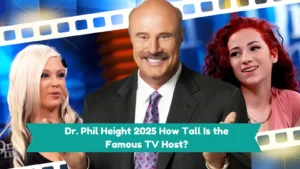When someone tells you, “You broke my heart,” it can be an emotionally charged moment that requires sensitivity, empathy, and careful communication.
Responding effectively involves acknowledging their pain, taking responsibility for your actions, and expressing a genuine desire to heal and move forward.
This article provides 30 thoughtful and creative responses to help navigate this difficult conversation, ensuring that your reply is both compassionate and constructive.
I’m Deeply Sorry. Can We Talk About What Happened?

Expressing deep sorrow immediately shows that you care about their feelings. Follow this by asking to talk about what happened to open a dialogue and address the issue directly.
Example:
Person:
“You broke my heart.”
You:
“I’m deeply sorry. Can we talk about what happened?”
This response shows empathy and a willingness to understand their perspective, which is crucial for healing.
I Never Meant to Hurt You. Can We Find a Way to Fix This?
Reassure them that hurting them was never your intention and express a desire to find a solution together.
Example:
Person:
“You broke my heart.”
You:
“I never meant to hurt you. Can we find a way to fix this?”
Acknowledging that the hurt was unintentional and showing a commitment to resolving the issue can help mend the relationship.
Your Pain Matters to Me. Let’s Discuss How We Can Heal.
By emphasizing that their pain is important to you, you validate their feelings and show that you are invested in the healing process.
Example:
Person:
“You broke my heart.”
You:
“Your pain matters to me. Let’s discuss how we can heal.”
This response demonstrates compassion and a collaborative approach to healing.
I’m Truly Sorry for My Actions. How Can I Make Amends?
Offering a heartfelt apology and asking how you can make amends shows a genuine desire to repair the damage.
Example:
Person:
“You broke my heart.”
You:
“I’m truly sorry for my actions. How can I make amends?”
This approach invites them to share what they need for their healing, fostering open communication.
I Apologize from the Bottom of My Heart. Can We Work Through This Together?
A deep apology followed by a suggestion to work through the issue together can help rebuild trust and connection.
Example:
Person:
“You broke my heart.”
You:
“I apologize from the bottom of my heart. Can we work through this together?”
This response shows a commitment to partnership and mutual support in the healing process.
I Regret Hurting You. What Can I Do to Make Things Right?

Expressing regret and asking what you can do to make things right shows accountability and a willingness to take corrective action.
Example:
Person:
“You broke my heart.”
You:
“I regret hurting you. What can I do to make things right?”
This invites the person to articulate their needs, promoting a path to reconciliation.
I Understand Your Pain. Can We Have a Conversation About It?
Acknowledging their pain and suggesting a conversation shows empathy and a readiness to listen and understand their perspective.
Example:
This response opens the door to a constructive dialogue aimed at healing and understanding.
I Regret Hurting You. What Can I Do to Make Things Right?
Apologizing for causing pain and focusing on moving forward shows a desire to heal and improve the relationship.
Example:
Person:
“You broke my heart.”
You:
“I’m sorry for causing you pain. Let’s talk about how we can move forward.”
This response balances acknowledgment of the past with a focus on future improvement.
I Never Wanted to Break Your Heart. Can We Talk About How to Fix This?
Expressing that you never intended to cause harm and suggesting a discussion on fixing the issue shows care and a proactive attitude.
Example:
Person:
“You broke my heart.”
You:
“I never wanted to break your heart. Can we talk about how to fix this?”
This response emphasizes your intentions and opens up a path to resolution.
I Feel Terrible About What Happened. How Can We Mend Our Relationship?
Sharing that you feel terrible and asking how to mend the relationship shows remorse and a desire to repair the bond.
Example:
Person:
“You broke my heart.”
You:
“I feel terrible about what happened. How can we mend our relationship?”
This response conveys your emotional state and your commitment to making things better.
I’m Truly Sorry. Can We Discuss How We Can Heal Together?
A sincere apology followed by a suggestion to discuss healing together shows empathy and a partnership approach to resolving the issue.
Example:
Person:
“You broke my heart.”
You:
“I’m truly sorry. Can we discuss how we can heal together?”
This response fosters a collaborative effort towards healing and reconciliation.
Your Hurt Is My Responsibility. Can We Talk About How to Make It Right?
Taking responsibility for their hurt and suggesting a discussion on making it right shows accountability and a proactive attitude.
Example:
Person:
“You broke my heart.”
You:
“Your hurt is my responsibility. Can we talk about how to make it right?”
This response demonstrates maturity and a commitment to addressing the issue.
I Apologize for My Actions. Let’s Work Together to Heal.
Apologizing for your actions and suggesting working together to heal shows remorse and a collaborative spirit.
Example:
Person:
“You broke my heart.”
You:
“I apologize for my actions. Let’s work together to heal.”
This response emphasizes partnership and mutual effort in the healing process.
I’m Sorry for the Pain I’ve Caused. How Can I Earn Your Forgiveness?

Apologizing for causing pain and asking how to earn forgiveness shows a genuine desire to repair the relationship.
Example:
Person:
“You broke my heart.”
You:
“I’m sorry for the pain I’ve caused. How can I earn your forgiveness?”
This response demonstrates a willingness to take steps towards making amends.
I Didn’t Intend to Hurt You. Can We Talk About How to Heal?
Reassuring them that the hurt was unintentional and suggesting a discussion on healing shows empathy and a proactive attitude.
Example:
Person:
“You broke my heart.”
You:
“I didn’t intend to hurt you. Can we talk about how to heal?”
This response balances explanation with a focus on resolution.
I’m Sincerely Sorry. Can We Discuss How to Move Forward?
A sincere apology followed by a suggestion to discuss moving forward shows a commitment to resolving the issue and improving the relationship.
Example:
Person:
“You broke my heart.”
You:
“I’m sincerely sorry. Can we discuss how to move forward?”
This response emphasizes sincerity and a forward-looking approach.
I Regret My Actions Deeply. Can We Talk About How to Heal?
Expressing deep regret and suggesting a discussion on healing shows accountability and a proactive attitude.
Example:
Person:
“You broke my heart.”
You:
“I regret my actions deeply. Can we talk about how to heal?”
This response conveys your remorse and a commitment to resolution.
I Understand How You Feel. Can We Have a Conversation About It?
Acknowledging their feelings and suggesting a conversation shows empathy and a readiness to listen and understand their perspective.
Example:
Person:
“You broke my heart.”
You:
“I understand how you feel. Can we have a conversation about it?”
This response opens the door to a constructive dialogue aimed at healing and understanding.
I’m Truly Sorry for Breaking Your Heart. Can We Work on Healing Together?
A heartfelt apology followed by a suggestion to work on healing together shows empathy and a partnership approach to resolving the issue.
Example:
Person:
“You broke my heart.”
You:
“I’m truly sorry for breaking your heart. Can we work on healing together?”
This response fosters a collaborative effort towards healing and reconciliation.
I Apologize for Hurting You. Can We Talk About How to Fix This?
Apologizing for hurting them and suggesting a discussion on fixing the issue shows care and a proactive attitude.
Example:
Person:
“You broke my heart.”
You:
I apologize for hurting you. Can we talk about how to fix this?”
This response emphasizes your intentions and opens up a path to resolution.
I Never Meant to Cause You Pain. Can We Discuss How to Move Forward?
Reassuring them that causing pain was never your intention and expressing a desire to move forward shows empathy and a focus on resolution.
Example:
Person:
“You broke my heart.”
You:
“I never meant to cause you pain. Can we discuss how to move forward?”
This response balances explanation with a commitment to improving the relationship.
I Feel Deeply Regretful. Can We Talk About How to Heal?
Expressing deep regret and suggesting a discussion on healing shows accountability and a proactive attitude.
Example:
Person:
“You broke my heart.”
You:
“I feel deeply regretful. Can we talk about how to heal?”
This response conveys your remorse and a commitment to resolution.
I’m Sorry for the Hurt I’ve Caused. Can We Find a Way to Move Forward?
Apologizing for causing hurt and focusing on moving forward shows a desire to heal and improve the relationship.
Example:
Person:
“You broke my heart.”
You:
“I’m sorry for the hurt I’ve caused. Can we find a way to move forward?”
This response balances acknowledgment of the past with a focus on future improvement.
I Understand Your Pain. Can We Work Together to Heal?
Acknowledging their pain and suggesting working together to heal shows empathy and a collaborative approach to resolving the issue.
Example:
Person:
“You broke my heart.”
You:
“I understand your pain. Can we work together to heal?”
This response emphasizes partnership and mutual effort in the healing process.
I’m Sincerely Apologetic. Can We Discuss How to Make Things Right?
A sincere apology followed by a suggestion to discuss making things right shows a commitment to resolving the issue and improving the relationship.
Example:
Person:
“You broke my heart.”
You:
“I’m sincerely apologetic. Can we discuss how to make things right?”
This response emphasizes sincerity and a forward-looking approach.
I Regret My Actions. How Can We Heal Together?
Expressing regret and asking how to heal together shows accountability and a willingness to take corrective action.
Example:
Person:
“You broke my heart.”
You:
“I regret my actions. How can we heal together?”
This invites the person to articulate their needs, promoting a path to reconciliation.
I’m Truly Sorry for My Actions. Can We Talk About Healing?
A heartfelt apology followed by a suggestion to talk about healing shows empathy and a partnership approach to resolving the issue.
Example:
Person:
“You broke my heart.”
You:
“I’m truly sorry for my actions. Can we talk about healing?”
This response fosters a collaborative effort towards healing and reconciliation.
I Never Wanted to Hurt You. Can We Discuss How to Fix This?
Expressing that you never intended to cause harm and suggesting a discussion on fixing the issue shows care and a proactive attitude.
Example:
Person:
“You broke my heart.”
You:
“I never wanted to hurt you. Can we discuss how to fix this?”
This response emphasizes your intentions and opens up a path to resolution.
I’m Deeply Sorry for Breaking Your Heart. How Can We Move Forward?
A deep apology followed by asking how to move forward shows a genuine desire to repair the damage and improve the relationship.
Example:
Person:
“You broke my heart.”
You:
“I’m deeply sorry for breaking your heart. How can we move forward?”
This response conveys your emotional state and your commitment to making things better.
I Apologize for My Mistakes. Can We Work Together to Heal?

Apologizing for your mistakes and suggesting working together to heal shows remorse and a collaborative spirit.
Example:
Person:
“You broke my heart.”
You:
“I apologize for my mistakes. Can we work together to heal?”
This response emphasizes partnership and mutual effort in the healing process.
Conclusion
When responding to someone who says, “You broke my heart,” it’s crucial to approach the conversation with empathy, accountability, and a genuine desire to mend the relationship. These 30 creative responses provide various ways to express your remorse, acknowledge their pain, and work towards healing together. By using these responses, you can foster open communication and take meaningful steps towards reconciliation and a stronger, healthier relationship.

Dariel Campbell is the driving force behind ReplySwift.com. With a passion for crafting quick and impactful responses, Dariel helps others master the art of effective communication. On ReplySwift.com, he shares expert advice, practical templates, and insightful tips to make every reply count. Join Dariel and elevate your communication skills to new heights.












